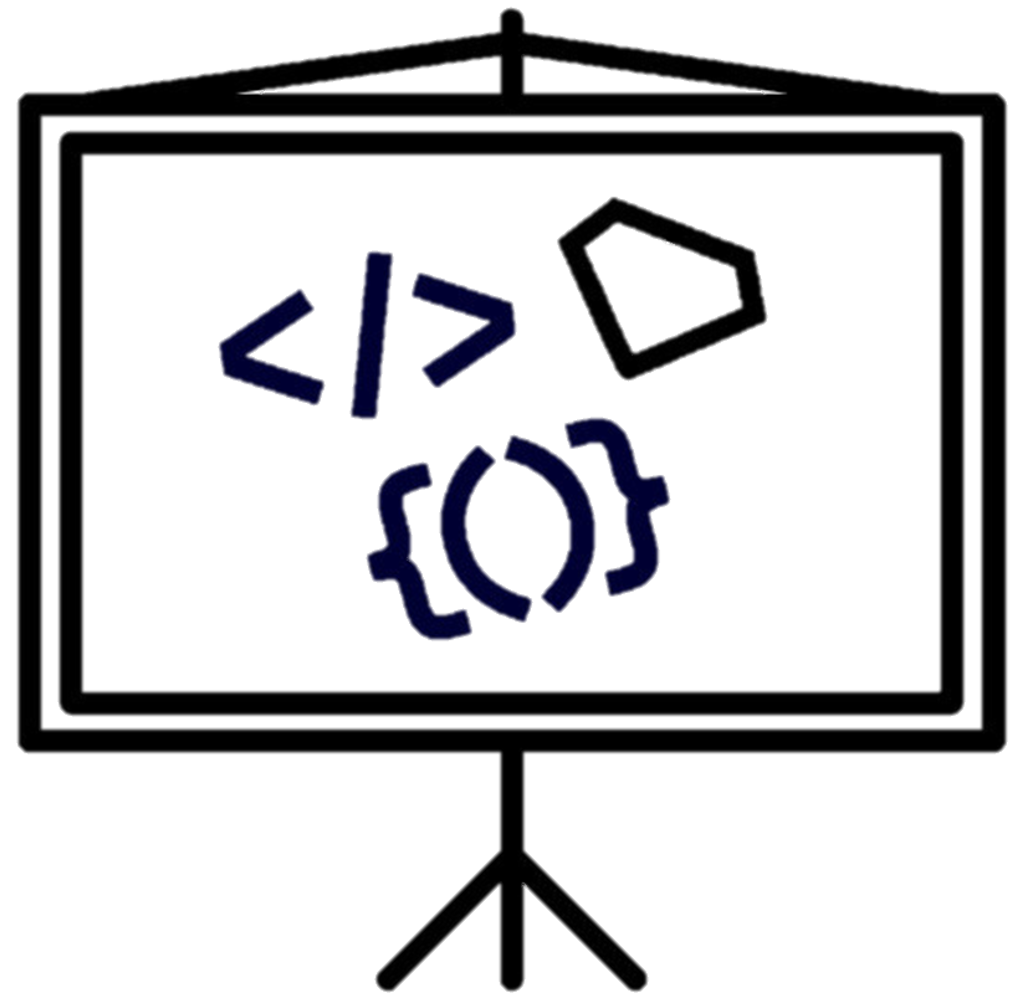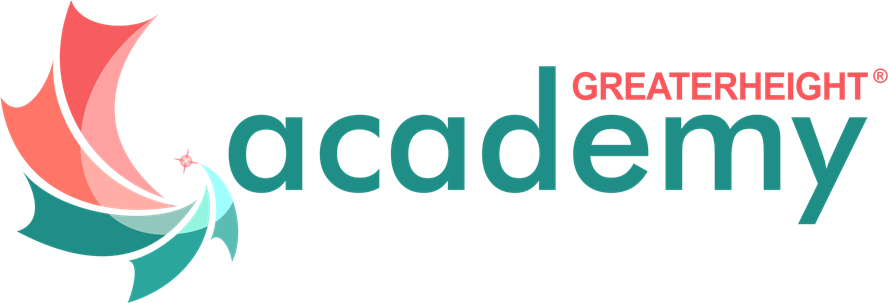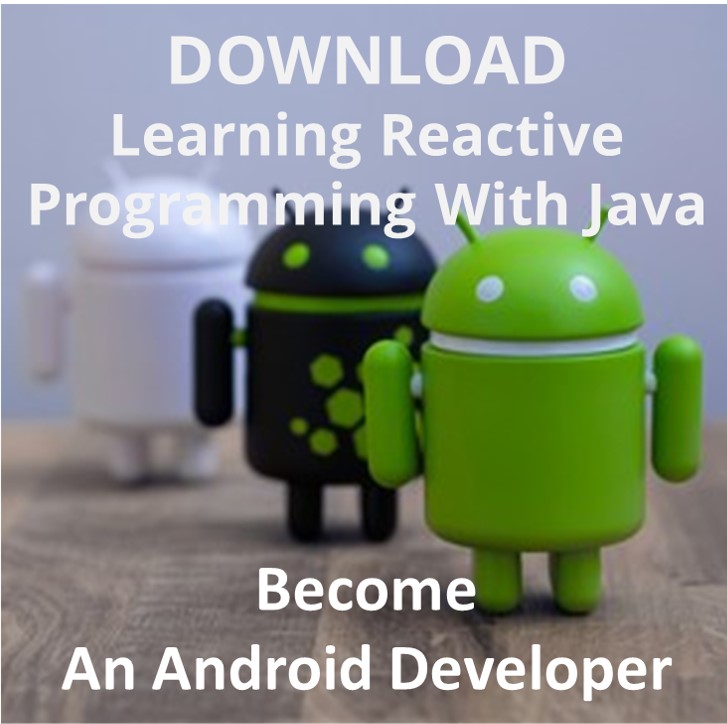About this Course
Reactive Programming is a programming style which deals with asynchronous data streams! A development model which focuses on observing data streams and reacting on changes and propagating them.
You learn Reactive Programming to build Reactive Systems - a highly resilient distributed systems or Microservices! Modern applications support huge number of concurrent users. Most of the applications are CRUD in nature with a lots of time consuming / blocking IO operations which is wasting the system resources. Reactive programming helps us to write highly resilient and reusable code in an asynchronous, non-blocking & declarative style. With less system resources, we get a lot more work done.
If you want to work on any of these, then this course is a prerequisite!!
- Spring WebFlux
- IRScoket
- Kafka or Redis stream processing
This course is a definite tutorial in RxJava filled with a lot of well-described examples. It explains reactive programming concepts in plain and readable language, without scientific formulas and terms.
COURSE COST
NGN 150,000
TIMELINE
8 Days
SKILL LEVEL
Beginner
INCLUDE IN THE COURSE
Rich Learning
Content
Taught by
Industry Pros
Student Support
Community
Interactive Quizzes
Self-Paced Learning
Join the Path to Greatness
This course is one of your fundamental step towards a new career building of confidence in Android Development at Greaterheight Academy Program.
OUR COURSE
Learning Reactive Programming With Java
Enhance your skill set and boost your hirability through innovative, independent learning.
GREATERHEIGHT ACADEMY PROGRAM
Become an android developer
Accelerate your career with the viable confidential credentials that fast-tracks you into a job and or business success.
LEARN MORE
| Date | Venue | Course Fee Before 28 June 2022 |
Course Fee Before 2 September 2022 |
|---|---|---|---|
|
6 – 16 May 2022
|
17B Debo Aina Crescent, Off Adeymo Akapo Street, Omole Phase I, Ojodu
|
NGN 150,000
|
NGN 310,000
|
| Date | Venue | Course Fee Before 28 June 2022 |
Course Fee Before 2 September 2022 |
|---|---|---|---|
|
6 – 16 May 2022
|
17B Debo Aina Crescent, Off Adeymo Akapo Street, Omole Phase I, Ojodu
|
NGN 150,000
|
NGN 310,000
|
| Date | Venue | Course Fee Before 28 June 2022 |
Course Fee Before 2 September 2022 |
|---|---|---|---|
|
6 – 16 May 2022
|
17B Debo Aina Crescent, Off Adeymo Akapo Street, Omole Phase I, Ojodu
|
NGN 150,000
|
NGN 310,000
|
| Date | Venue | Course Fee Before 28 June 2022 |
Course Fee Before 2 September 2022 |
|---|---|---|---|
|
6 – 16 May 2022
|
17B Debo Aina Crescent, Off Adeymo Akapo Street, Omole Phase I, Ojodu
|
NGN 150,000
|
NGN 310,000
|
Course fees include documentation, luncheon and refreshments. Delegates who attend all sessions and successfully complete the course assessment will receive Certificate of Completion.

*Book and pay full fee for two colleagues and the third attends for FREE
- Not applicable in conjunction with corporate discounts
- Payment to be settled before start of the course to avail the offer
- This offer is not applicable on Early Bird Prices
For more information, email GreaterHeight Academy on info@greaterheight.academy
WHAT YOU WILL LEARN
Lesson 1
Learning Reactive Programming with Java 16 An Introduction to Reactive Programming
- What is reactive programming?
- Why should we be reactive?
- Introducing RxJava
- More features
Lesson 2
Using the Functional Constructions of Java 16
- Lambdas in Java 16
- Implementing the reactive sum example with lambdas
- Pure functions and higher order functions
- More features
Lesson 3
Creating and Connecting Observables, Observers, and Subjects
- The Observable.from method
- The Observable.just method
- Other Observable factory methods
- The Observable.create method
- Subscribing and unsubscribing
- Hot and cold Observable instances
- The Subject instances and More features
Prerequisites and Requirements
The pre-requisite for this course include A compatible and functioning computer.
See the Technology Requirements for using GreaterHeightAcademy.
Why Take This Course?
At the end of this course students will be able to:
- Discover what reactive programming is and how you can benefit from it
- Get to grips with the new functional features of Java 16 and some functional theory
- Create RxJava Observable instances from virtually any data source
- Transform, filter, and accumulate your data using various RxJava operators
- Combine multiple data sources in one dataset, using custom logic
- Write concurrent programs with ease, scheduling actions on various workers
- Learn about unit testing asynchronous RxJava logic
- Extend RxJava by writing your own operators and factory methods
WHAT DO I GET?
Instructor
Materials
Learn by doing exercises
and assignments
Taught by industry
professionals
Documentation
Launcheon
Certificate of
completion
Related Courses
Our Popular Courses
GET THE INFO FROM AN EXPERT
Dive deep into the curriculum, the course structure, and what you can achieve from a course mentor.
See if this program is a fit for you. Meet the GreaterHeight team, get an overview of the program curriculum, and chat with other students thinking about this program.

Learning Reactive Programming With Java information Session
By providing us with your email, you agree to the terms of our Privacy Policy and Terms of Services.
FAQs
We love questions, almost as much aswelove providing answers.Here are a few samplings of what we're typically asked, along with our responses.
Because we Create dynamic, innovative products with our Anrdoid Stack Developers, Software Engineers and Professionals as instructors.
By the end of this course, you will practically learn and Understand and apply various Git commands, Explore Git with tools like GitHub Desktop and Source Tree, Apply various designing and work flow techniques using Command line, Use commands and tools for reviews, Implement Git flow designs in Source Tree, Apply work flow using GitHub Desktop and more...
Creative, dynamic, and serious minded Student, Managers in various fields, Developers and Networking students that are looking forward to be porfessionals Android Development.
You will create a project (see also our project section) as following:
- Fork the repository that will be created by the trainer for the project
- Clone the forked repository on to local machine
- Create feature branch on the local machine
- Configure the upstream repo
- Add some files, edit the files. remove some files and finally commit the changes to the feature branch and push it to the origin report
- Create a pull request for other developers
- Work on the pull request feature and provide comments on GitHub UI
- Merge the changes from the pull repository of other collaborators to their local repo
- Push the changes to the main branch and finally delete the feature branches


